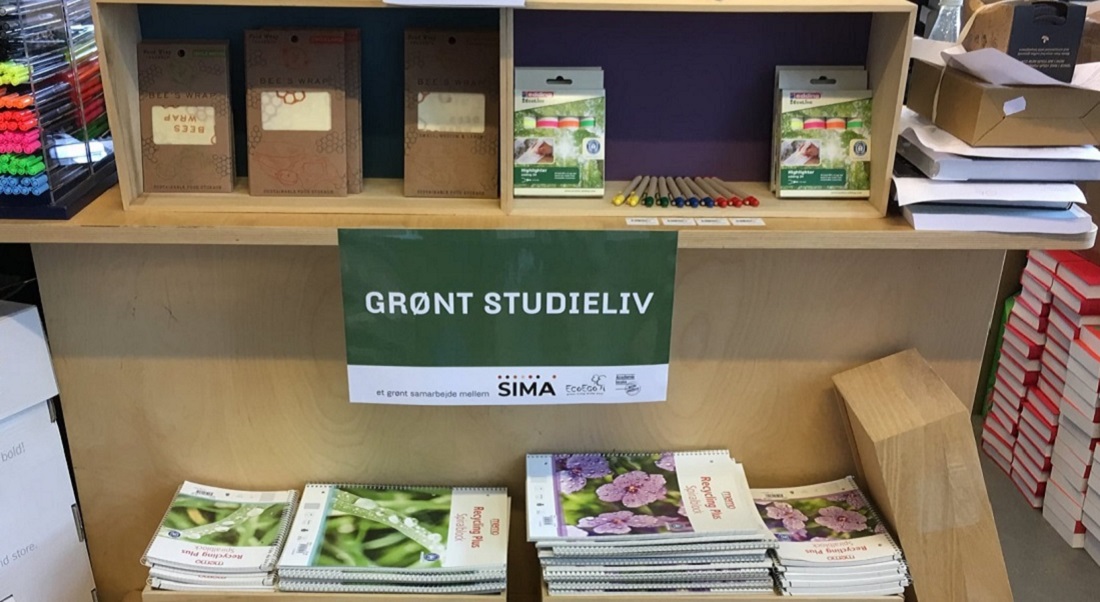Green Studying at City Campus
Pens, notebooks and highlighters are part of everyday life at a University. Students and employees alike are heavy consumers – so what if such products could be more sustainable? External lecturer Hanne Bess Boelsbjerg and the green student organisation SIMA thought just that and took the initiative to create a green corner at Academic Books.

When students and employees at City Campus (CSS) visit Academic Books to buy equipment for the Autumn Semester they will now meet a new display of pens, highlighters and notebooks. The set-up looks like most of the other shelves, but there is a remarkable difference. The display has a sign reading "Green Semester Start" and offers highlighters made from plant-based plastic and notebooks made from recycled paper. The display provides students and employees with a greener alternative to the traditional articles. Naturally, the most sustainable choice is to use what you already have, but when it is necessary to buy new equipment, students now have a more sustainable option at hand.
The green corner has come to life through a partnership between Academic Books, the green student organisation SIMA and EcoEgo, who acted as a consultant in choosing the most sustainable articles. Hanne Bess Boelsbjerg, external lecturer in Sociology, initiated the cooperation to ensure the availability of more sustainable options in the shop. The students in SIMA are very positive:
"We buy dozens of pens. It is great to have a sustainable alternative. We hope that this will get more people to choose the sustainable option, now the articles are readily available and you don't have to search actively to find them," Jonatan Balle from SIMA tells.
Aiming to inspire
In addition to the sustainable writing tools, you can also buy bee wax-paper, lunch boxes and thermal mugs made from coffee grounds. These serve as an invitation to leave plastic bags and aluminium foil at home and avoid single-use cups by the coffee machine.
"We hope that we can encourage students to act more sustainably. Both when it comes to the items, they need to buy, but also by inspiring them to think and act sustainably in new ways." Hanne Bess Boelsbjerg says.
